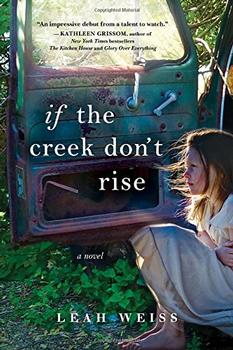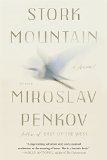Summary | Excerpt | Reviews | Beyond the book | Read-Alikes | Genres & Themes | Author Bio

Katharina Hagena's The Taste of Apple Seeds is a peculiar little jewel of a book, a lyrical family novel in which a young
German woman named Iris inherits her grandmother's house. The story is not a plot-driven cloak-and-dagger mystery,
nor is it full of car chases or supernatural villains - the novel is focused primarily on the unspooling of Iris's memories.
As she explores the old North German farmhouse after her grandmother's death, she sifts through family lore and revisits the pivotal
events of her youth. She is looking for patterns everywhere - in the drawers of her grandfather's desk, in the stones of the terrace floor,
and in the order of the books of the shelves. Hagena pulls the reader along with a thread of suspense as
fine and tenacious as a cobweb. As Iris's thoughts circle ever closer to the facts of her own life, and
in particular the tragedy that befell her cousin Rosemarie when the girls were teenagers, even the most descriptive passages are imbued with urgency.
Hagena's lyricism is richly rewarding. Her account, in Iris's voice, of grandmother Bertha's sliding into
dementia is beautiful and sad, and seems piercingly true-to-life. There are touches of magical realism in the family lore
too - the red currants out back are reputed to have turned white when an aunt died of pneumonia, and another aunt gives
off electrical shocks to whomever she touches. These fanciful elements add to the realistic richness of Iris's
memories; their magical features stand in for the emotional resonance of events that deeply imprint the family beyond
the scope of one generation. What Iris inherits is more than nostalgia, it is identity - a sense of place in time and history as well as physical space.
A German novel can't range back over the last few generations without bumping into World War II, and
The Taste of Apple Seeds is no exception. Iris's grandfather Hinnerk was a Nazi; a by-the-book prison administrator
who wrote poetry on the side and helped a Jewish neighbor escape to the West. Hagena plays with this history when Iris gets
involved in a comical episode involving some red graffiti and a (literal!) pail of whitewash.
But the real core of the book is its sensuality, the unexpected tastes and sights and sounds that it evokes,
like the surprising taste of marzipan in the seeds of a Boskoop apple. When Iris goes to the grocery store,
we get her entire mouth-watering list, "I bought some milk, black bread, cheese, a bottle of apple juice, and a large carton of multivitamin buttermilk.
As well as a newspaper, a packet of crisps, and a bar of nut chocolate for an emergency."
The interiors of the old farmhouse are cluttered and full of aromas, and there are vintage dresses to try on and old jars
of jam to bring up from the cellar. Even the words, rendered here in a fine translation by Jamie Bulloch, are sensual.
In her regular life, Iris is a librarian, a lover of books who collected words as a child in an effort to satisfy her
"craving for magical, animated worlds in sleeping things." While some readers may balk at the quietness of The Taste of Apple Seeds,
many will enjoy the flavor of Iris's rich mind. Originally published in German in 2008, the novel became a sleeper hit in Europe, and was made into a movie in 2013.
![]() This review
first ran in the March 5, 2014
issue of BookBrowse Recommends.
This review
first ran in the March 5, 2014
issue of BookBrowse Recommends.

If you liked The Taste of Apple Seeds, try these:

by Leah Weiss
Published 2017
With a colorful cast of characters that each contribute a new perspective, If The Creek Don't Rise is a debut novel bursting with heart, honesty, and homegrown grit.

by Miroslav Penkov
Published 2017
Stork Mountain is an enormously charming, slyly brilliant debut novel from an internationally celebrated writer. It is a novel that will undoubtedly find a home in many readers' hearts.
The worth of a book is to be measured by what you can carry away from it.
Click Here to find out who said this, as well as discovering other famous literary quotes!
Your guide toexceptional books
BookBrowse seeks out and recommends the best in contemporary fiction and nonfiction—books that not only engage and entertain but also deepen our understanding of ourselves and the world around us.